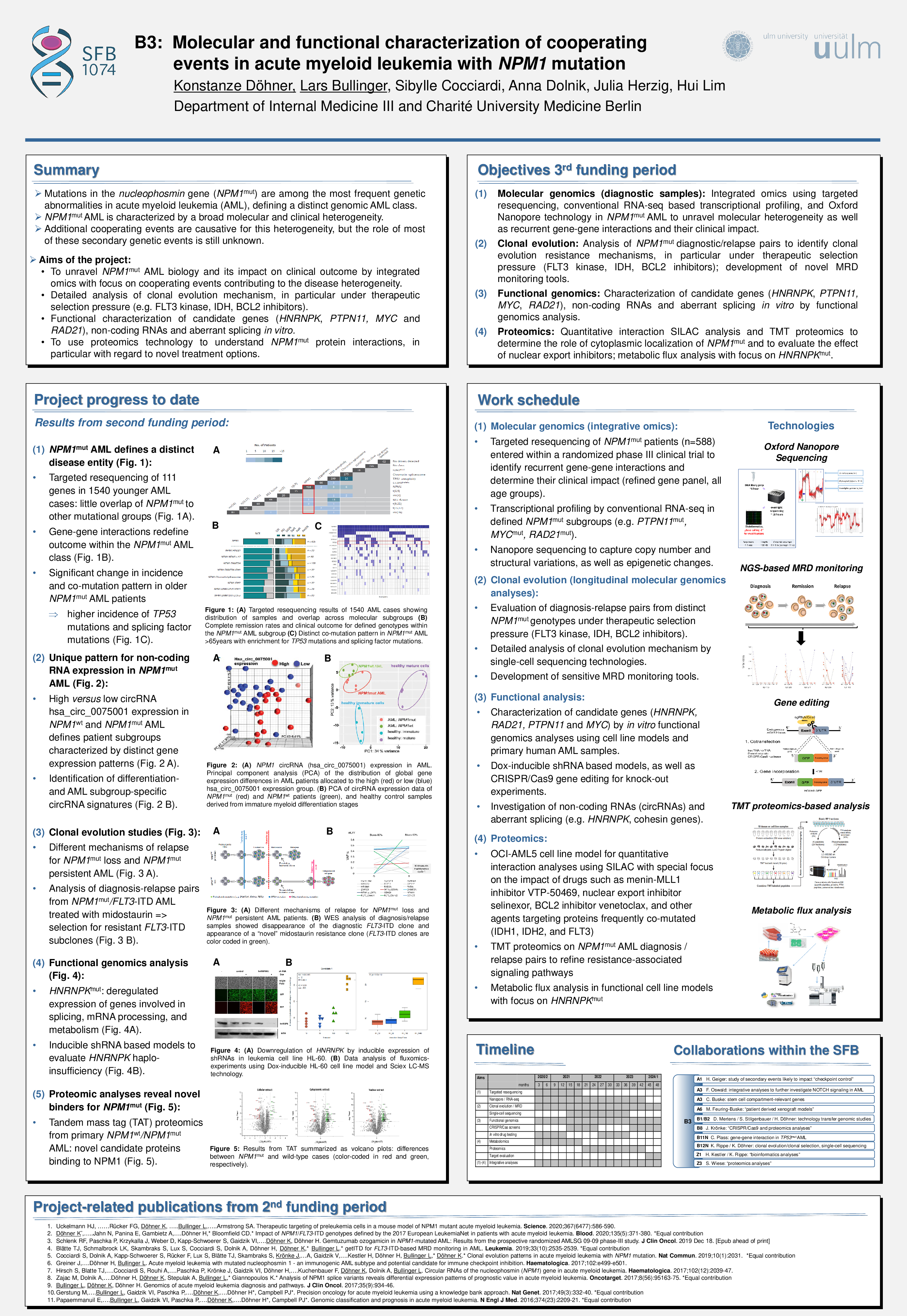B3: Molecular and functional characterization of cooperating events in acute myeloid leukemia with NPM1 mutation
Principal Investigators
Prof. Dr. med. Konstanze Döhner
Department of Internal Medicine III
University of Ulm
Albert-Einstein-Allee 23
89081 Ulm
Phone: 0731-500-45501
konstanze.doehner@uniklinik-ulm.de

Prof. Dr. med. Lars Bullinger
Medizinische Klinik m.S. Hämatologie, Onkologie und Tumorimmunologie
Charité Universitätsmedizin Berlin
Campus Virchow-Klinikum
Augustenberger Platz 1
13353 Berlin
Phone: 030-450553192
lars.bullinger(at)charite.de

Summary
Mutations in the Nucleophosmin gene (NPM1) are among the most frequent genetic abnormalities in AML. During the last two funding periods, we have unraveled the molecular heterogeneity of this AML subtype, studied patterns of clonal evolution in NPM1mut AML, performed functional analyses of cooperating mutations, and started proteomics analyses using stable isotope labeling by amino acid in cell culture (SILAC) to study the role of the cytoplasmic localization of NPM1mut on the interaction with other proteins. In a third funding period, we will 1) further investigate the impact of NPM1mut AML cooperating events; to this end, a unique cohort of patients (n=588) randomized within the AMLSG 09-09 clinical trial will be analyzed by an integrated genomics approach providing a powerful basis to further identify secondary and tertiary gene-gene interactions and their clinical impact; 2) study different models of clonal leukemia evolution that have been identified in our previous work by using novel single-cell sequencing technologies; 3) continue our functional analyses on the role of defined NPM1mut cooperating mutations, such as mutations in HNRNPK, PTPN11, MYC, and RAD21 by using CRISPR/Cas9 technology; and 4) continue to study the impact of NPM1mut on the transcriptome and proteome level. We will use novel fourth-generation sequencing technology to further unravel the role and impact of alternative splicing. Data from this project will then also be subjected to integrative analysis with the proteomics information generated during the second funding period as well as with an unbiased proteomics approach that will allow us to capture the expression of ~4,000 proteins in individual NPM1mut AML samples.
For a current list of all project-related publications, please go to this page

